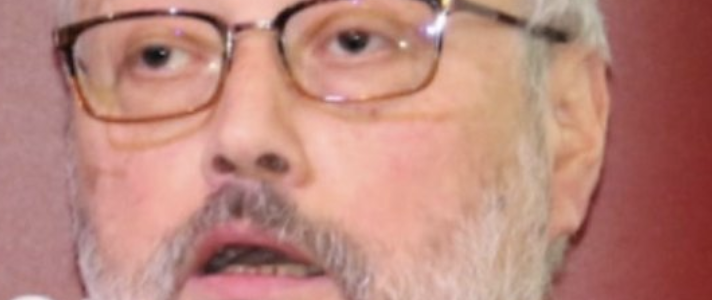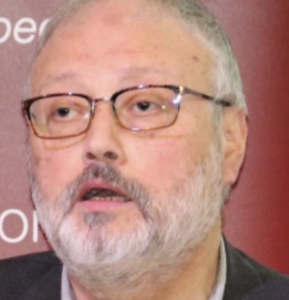
Khashoggi death Saudi Arabia now says journalist was murdered

Following an international outcry, Saudi Arabia has blamed the killing of journalist Jamal Khashoggi on a “rogue operation”.
Foreign Minister Adel al-Jubeir said the murder had been a tremendous mistake and denied the powerful crown prince Mohammed bin Salman had ordered it. “We are determined to find out all the facts and we are determined to punish those who are responsible for this murder. The individuals who did this, did this outside the scope of their authority. Even the senior leadership of our intelligence service was not aware of this” he added calling it a “rogue operation”.
“There obviously was a tremendous mistake made, and on the top of that was the attempt to try to cover up”.
This latest statement differs from previous statements presents by Saudi officials on what happened in Istanbul on 2 October, and also in conflict with those by Turkish officials who claim they have a video and audio proof that Khashoggi, a prominent critic of the Saudi government was murdered by a 15-strong team who arrive and departed Istanbul on the same day.
On October 15, following a conversation between Saudi Arabia’s King Salman and Donald Trump, the US President told reporters that the King had denied all knowledge of Khashoggi’s disappearance and said the King’s denial as very very strong.
Khashoggi who had been living in self-imposed exile in the US, was reported missing hours after he entered the Saudi consulate to obtain paperwork that would allow him to marry his Turkish Fiancee. The next day a Saudi official insisted that Khashoggi had left shortly after getting the paperwork and that he was not in the consulate nor in Saudi custody.
After two weeks of denials, Riyadh on Saturday finally acknowledged that the 60-year-old had died in its consulate in Istanbul. The attorney-general said he was killed in a fight with Saudi officials, claims treated with widespread scepticism.
Jamal Khashoggi, born in 1958, to a prominent Saudi family, and grew up in the holy city of Meidna and studied in the Indiana State University and who had unrivalled access to princes and western diplomats, was one of the most powerful voices in Middle-East journalism. His grandfather was doctor to Ibn Saud, the founder of Saudi Arabia. He made his name for coverage of Afghan war and the first Gulf war before becoming deputy editor in chief of English-language daily Arab News.
While in exile he wrote regular column for the Washington Post, often criticising the direction taken under the autocratic crown prince. His ties to power in the kingdom oscillated and his career was punctuated with a series of controversies.
In 2003, he was sacked less than two months after being appointed editor-in-chief of al-Watan daily after critical coverage of the then-feared religious police. He then worked as an adviser to Prince Turki al-Faisal, the former intelligence chief, when he served as ambassador to UK and the US before returning as editor of al-Watan in 2007. Khashoggi resigned under pressure after the paper published an op-ed that criticised Salafism, a strict interpretation of Sunni Islam. He was then appointed managing editor for a news television channel by tycoon prince Al-Waleed bin Talal, but sadly the channel was shut down on its first day on air after hosting a Bahraini opposition figure.
His death has made several in the Saudi media. In 2011, Khashoggi was criticised for expressing sympathy with Islamist groups that reached power such as the Muslim Brotherhood, an Islamist group he had flirted with in his youth when communism was the enemy.
In November 2016, Saudi leaders seeking fresh ties with Donald Trump, officials banned Khashoggi from writing and tweeting after he criticised president-elect. In August 2017, he was allowed resume writing his weekly column in the pan-Arab daily al-Hayat by the owner Prince Khaled bin Sultan suspended him after he defended Muslim Brotherhood in a series of tweets.
In recent weeks through his column in Washington Post, Khashoggi lamented the lack of free press in the Arab region and how the authorities had crushed hope that the internet would liberate information from their censorship and strict control.
